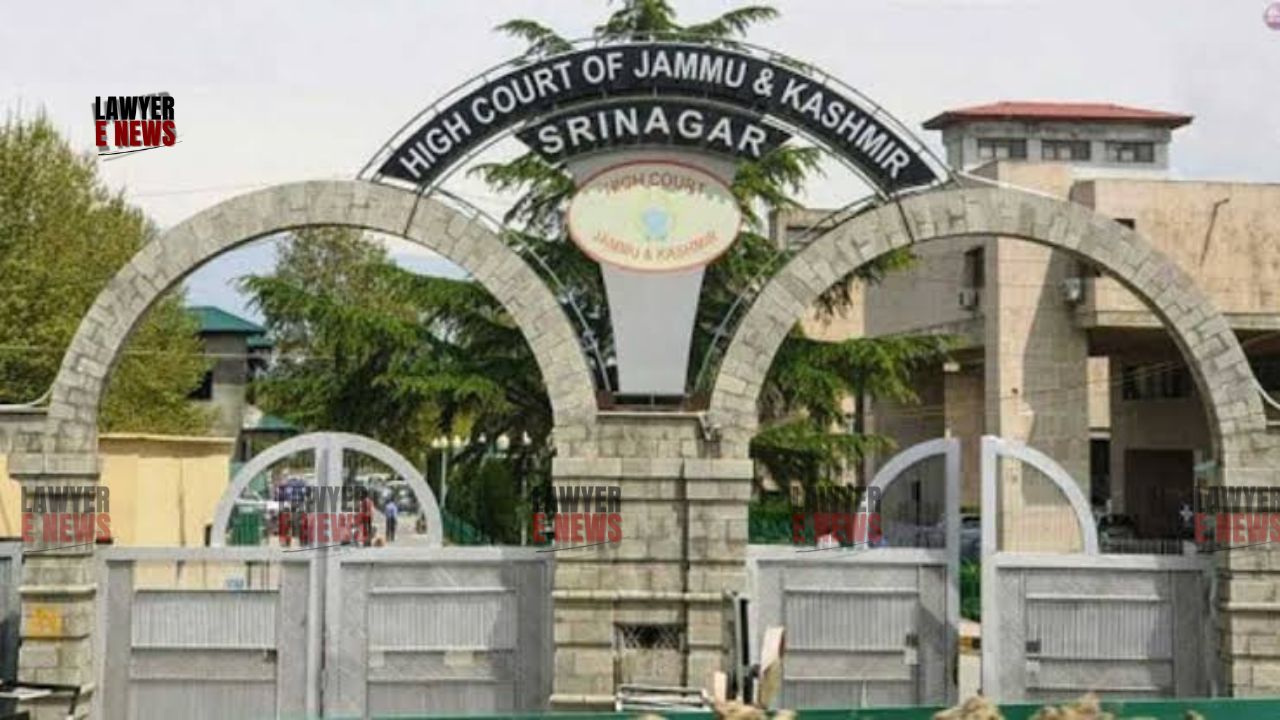-
by Admin
15 February 2026 5:35 AM



Jammu & Kashmir High Court dismissed a plea filed by parents-in-law challenging domestic violence proceedings initiated by their estranged daughter-in-law under the Protection of Women from Domestic Violence Act, 2005. Justice Sanjay Dhar ruled that the second petition, filed after the withdrawal of an earlier one, was maintainable since the withdrawal stemmed from assurances of reconciliation that were later breached.
The Court also clarified that the principle of res judicata under civil law does not bar subsequent petitions under the DV Act, particularly when fresh circumstances necessitate legal intervention.
The respondent, Davinder Kour, alleged physical, verbal, and economic abuse by her husband and in-laws after her marriage in 2015. She claimed that despite withdrawing an earlier petition under Section 12 of the DV Act on assurances of reconciliation, her in-laws failed to honor their promise. Instead, she alleged they demanded ₹30 lakh as dowry and expelled her from the matrimonial home.
The in-laws argued that the second petition was not maintainable due to the withdrawal of the earlier one. They also claimed that no "domestic relationship" existed since the respondent had been living separately since 2016.
The Court rejected the in-laws' arguments, emphasizing that the DV Act is a social welfare legislation designed to provide immediate relief to aggrieved persons. Justice Dhar noted, “The provisions of the Code of Civil Procedure relating to res judicata cannot be applied rigidly to proceedings under the DV Act, especially when the circumstances for re-approaching the Court are explained and justified.”
The Court also underscored that the respondent’s allegations were specific and serious, meeting the statutory definition of domestic violence under Section 3 of the DV Act. It noted that the trial and appellate courts had already concurred on the prima facie validity of these allegations.
Addressing the contention of a lack of a domestic relationship, the Court referred to Section 2(f) of the DV Act, which defines a domestic relationship as one between persons who “live or have lived together in a shared household at any point of time.” Justice Dhar clarified that even if the respondent had left the matrimonial home in 2016, her prior cohabitation with her in-laws established a domestic relationship, making the petition maintainable.
The High Court dismissed the petition, affirming the rights of aggrieved women under the DV Act to seek legal recourse when their rights are violated. The judgment underscores the Act's remedial purpose, ensuring that procedural technicalities do not obstruct justice.
Date of Decision: November 8, 2024.
